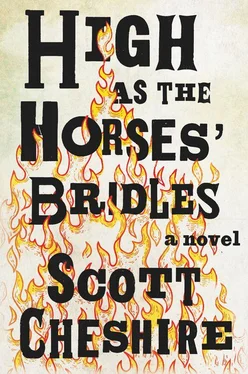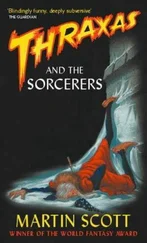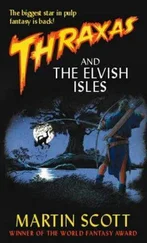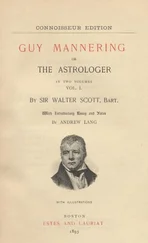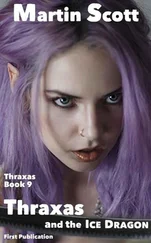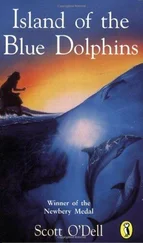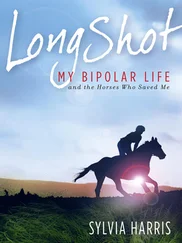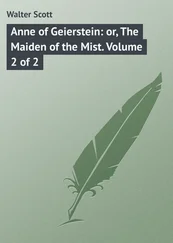He reached out for the computer screen, and steadied himself. He held fast to it, for support, and his chin fell into a tremor.
“I’m not stupid,” he said, and waved me away. “Just tired.”
I followed him to the bathroom, asking him, “Please, just please let me in.” I tried to follow him inside. I wanted to help. He pushed me away. I threatened to remove the door from its hinges, to which he said: “I am still your father.”
* * *
I sat at the kitchen table flipping through one of the photo albums. I saw pictures of our family at the park; on vacation; at church services and congregation barbecues. I saw school portraits of me from kindergarten on through high school, nearly every year, on two pages, my hair longer and less conservative from junior high on, a taxonomy of coiffured rebellion. There was one year, eleventh grade, when I briefly sported a meek attempt at a Mohawk, the sides not entirely shaved. I lacked nerve. The photographer had to tamp down the central tuft. This was soon repaired by way of Dad’s electric clippers.
And there were pictures of my mother. I chose two, peeled them out from under the laminate, one of her in a high 1960s beehive, beaming like a supremely happy young woman in the passenger seat of a white convertible. She looked like a real lady of her day, ecstatic. Must’ve been taken before Dad. The other was a mom I knew, sitting in the sun with an arm around each of her boys, Dad and me, holding on to us like she’d never let go, no matter what, forcing a smile. I used to get the feeling that Mom wasn’t afraid of anything at all, and that as long as she was here Dad and I would be well taken care of, that she kept us grounded. But really, I think Mom was afraid of something, of Dad’s insatiable hunger for God, and if not for her and her fear I believe we all would have spun off into space and lost our minds already. It occurred to me that maybe Dad knew this, too.
I kept looking through the album, at the faces of people long gone, at cousins I’d never see again, at the faces of fellow congregants playing Frisbee at Bible-study picnics. And then I saw the face of little Issy. It sent a chill through me, literally. It was a class photo from elementary school, along with other class pictures of kids I knew from church. He was a boy, just a kid, seated next to an American flag respectfully draped over a globe, a golden curtain behind him. Of course I’d seen the photo before, but I’d completely forgotten about it, and somehow it was immediately the distillation of my every memory of him. This was Issy. His lips partially constricted, his hair a little mussed like he had just scratched at the back of his head. Everything about the face suggested a little boy, thoughtful and completely lost. Yet here he was. Right here. I peeled away the photo and put it with the others. I still wanted an aspirin.
I looked at the phone on the wall. It was avocado green and right where it should’ve been. This was the phone Mom answered when the school called saying I was absent. Yet again, your son isn’t here. I used to wonder what made her angrier: that I was cutting school or that I was spending my time with the “Hindu girl.” I wanted more bread and butter. The weary and wine-sugared brain cells were in need of funneling. I needed focus. So I poured a glass of cool water and took out the butter dish and bread.
I’m not a butter person, and yes there are what can be called butter people. French food, to this day, makes my stomach rumble. I know it’s because of the butter. I don’t like the slick it leaves in my mouth. Sarah used to say food is the truest mirror, and never trust the man reveling in Buffalo wings, with no regard for sauce on his fingers, with the pile of red-soaked Handi Wipes beside him as if emptied from an autopsy bin. I don’t like things too rich. Yet I lavished the stiff bread with butter, knifed it on smooth and soft. I put a small pat in the freezer and let it harden. I ate the pat whole and started to feel a little bit better. Dark marbles of cat shit and white foam kernels of packing littered the floor like monstrous nodules of salt and pepper, and entire populations of cellular villages in my blood were running, ecstatic, as planes dropped boxes of butter from the sky. I opened the window shade as my father walked in.
“Good morning, sir. Again.” I sipped from a glass of water. “You know it’s nearly noon.”
Hands at his eyes, and batting for the light switch, he said, “What’s this?”
“It’s called daylight. And as long as I’m here and you insist on living in a cave, I will have one room where I can go and live like a person.”
“I was sleeping.”
“I should have called a psychiatrist by now.”
He rubbed at his eyes.
I held up my bread. “Can I please make you something to eat?”
He was considering something, looking up to the ceiling, biting his lip. His shirt was wrinkled and situated oddly on his torso. His stomach peeked from under the hem, the skin shiny and stretched. And yet I swear he’d lost even more weight in the last two hours. He started forward. And he wavered there for a moment. What little color he had was draining from his face.
Then he fell over, catching himself on the counter.
“Hey. Whoa. Come here.” I took him by an arm.
“I’m fine!”
I lifted him anyway, and brought him to a chair. I looked at him and wondered what my own kid would have looked like: part me, part Sarah, and, somewhere in the mix, partly this skinny old man.…
“Ankle’s just tricky, I’m fine.”
“You’re not fine.” I jogged to the living room, thinking now I would not take no for an answer. This was too urgent, and I would call for a doctor. On the floor beside a sofa leg, a cat was sniffing at my phone. I kicked at the cat and she cried out.
“Get in here,” he called out. “Just follow me.”
I found him pulling himself along the hallway. “You’re like your mother. So protective, and when you get grumpy, everybody watch out.” He was clutching the bathroom doorknob now. The red light was leaking from under.
He said, “You like eggs?”
How do you answer a question like this?
He pointed at my mouth, at something on my face. “You like butter, that’s obvious, but do you like eggs?”
He opened the bathroom door.
It was dark inside, except for the plump red night-light plugged in above the sink. He nodded, prompting me to enter. It was very much like a darkroom. Negatives should’ve been dangling from clothespins affixed to the shower rod. And I have to say the red glow became spookily attractive pretty fast. The bathtub was full of water, clean and clear red water. A short cot, raised not six inches from the floor, was next to the tub. A thin mattress. A pillow. A black spiral notebook. He followed me into the red room and closed the door. I couldn’t help but think of horror movies: I would now be bludgeoned. My father standing in the dark Martian light was shorter than I thought he should be. He was delicate and looked so fragile. I wanted to lift him and lay him on the cot. I wanted to pat his head with a wet cloth and read the man to sleep.
He perched himself on the side of the tub and said, “My head is the egg in here. I keep it warm and wait for dreams.”
“You have dreams.”
“I have dreams. And then I go looking for your mother.”
He put out his hand, I took it, and he pulled himself to a standing position. I wondered how much trouble he’d had before, having to lift himself, all by himself, from the cot. He opened the door and went back in the hallway. I stayed there for a moment, surrounded by the red walls of another man’s insides, his stomach, his heart and lungs. I was foreign matter in my father’s blood and I almost knew every secret, just this side of the blood — brain barrier. Somewhere just beyond the red walls, in who knows what other invisible place, I would find the dreaming brain of my father. I found him sitting at the dining room table.
Читать дальше
